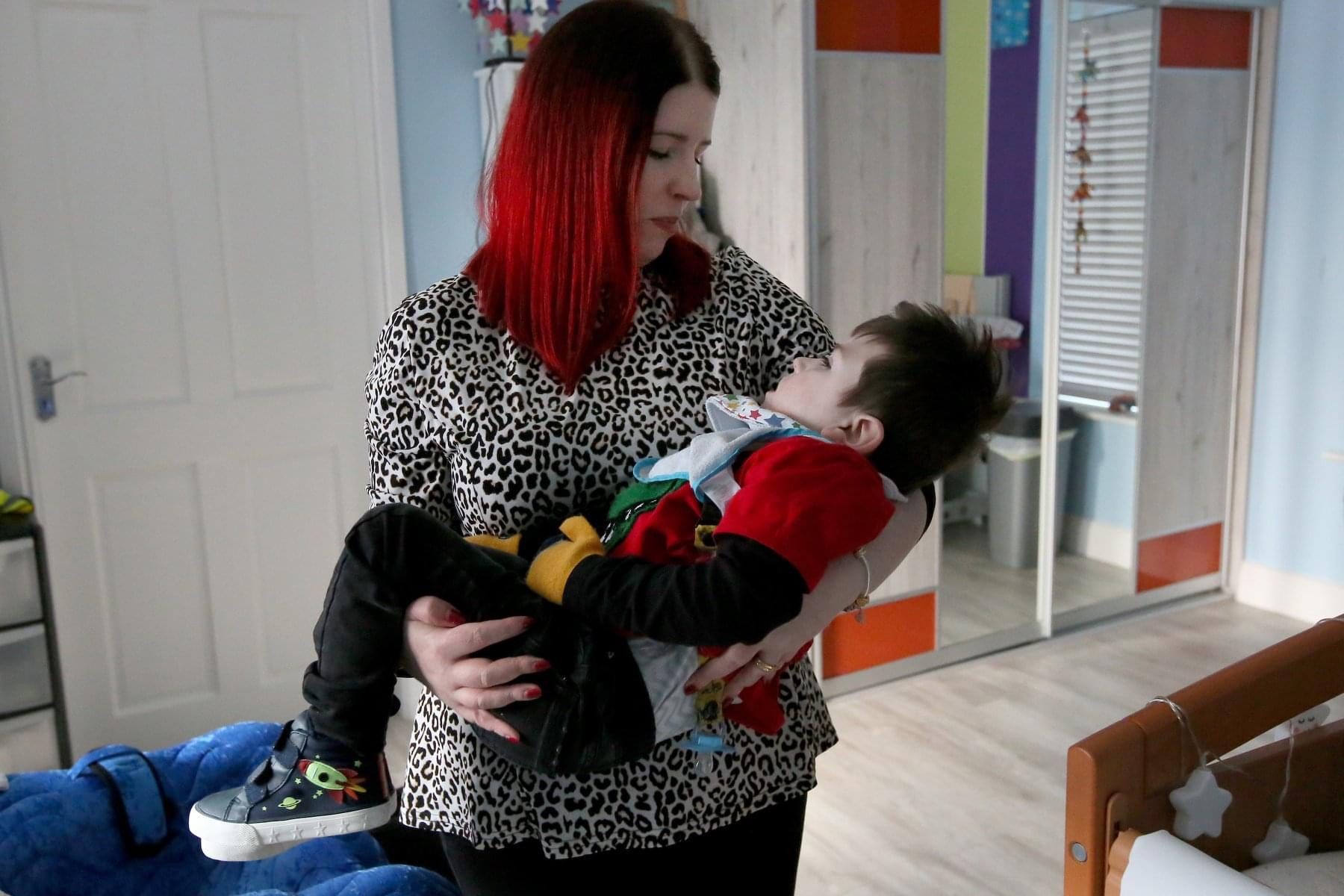The Coronavirus has dominated both global and Irish news for the last couple of months…
It forced people into an unexpected corner. From the start, reports and bulletins highlighted the death tolls, the closure of businesses, and the changes to the our daily lives.
One of the major changes to public lives came with the closure of labour markets and work forces. Globally, the majority of people were temporarily forced out of work due to the virus.
After a lockdown was called mid-March, lives changed over night for those living in the Republic of Ireland too. No schools, no pubs, no work, no socialising, no GAA, no mass; not one single person could have predicted or prepared for the impact it would have on everyday life.
__
A double jeopardy:
Some members of the public who have been hit with a double jeopardy during the pandemic are full-time carers. The Covid-19 pandemic has meant that full-time carers are now working – and caring for their loved ones – more than ever before.
This is due to the decreased availability of already-limited Government-funded resources such as respite day-care services. Where some members of the public were thinking ‘no pubs, no socialising, no sports’, other members were thinking ‘no day-care services, no activities, no help’.
As full-time carers are predominantly caring for those with varied disabilities or with underlying conditions, extra-care is needed during these unprecedented times.
A return to normality, where resources like day-care services are available again, feels like a lifetime away for many carers now placed into this position.

__
Covid-19 and unemployment:
For Irish people who have been forced into temporary unemployement due to the Covid-19 pandemic, one option is to claim the unemployment welfare payment. This Covid-19 unemployment welfare payment stands at €350 per-week, direct into the bank account every Tuesday.
The problem here does not lie with the welfare payment itself, nor does it lie with the fact that a minority of people who were once earning less, are now earning more thanks to the payment.
The Covid-19 welfare payment is fine and it’s fair. It balances itself out.
Instead, the problem here is a moral one. Even though full-time carers are actually working more now during the pandemic than ever before, this additional work is not reflected in their weekly allowance.
This article isn’t published in an attempt to politicise the response to the Covid-19 pandemic; its aim is to shed some light on the position of full-time family carers, who now more than ever, are in need of Government’s help.
At the very minimum, full-time carers, who do not have any other job or income source, should be receiving the same as people claiming the Covid-19 welfare payment.
Businesses are closing, jobs are impacted, while tourism is at a stand-still. Extraordinary figures, and injections of cash, are being thrown around to help mediate the impacts of the Coronavirus on the Irish economy.
It has led to the confirmation of a multi-billion euro recovery plan which will be injected to reboot Ireland’s economy. Its confirmation, once again, shows that funds can be sought when there’s a desire.
But, unfortunately, once again, some of the most forgotten people in Irish society are Ireland’s carers, and those who are looking after our most vulnerable citizens.

__
Carers allowance & tokenism:
But, really, should we be overly-surprised?
If we take a full-time carer, caring for his/her son, he/she will earn €219 per-week. A full-time family carer’s wage has never been reflected in their take-home pay, despite the fact that the role is more than the average Joe’s full-time job.
The term ‘earn’ is mentioned lightly. For most of us, if we were ‘earning’, we would not have to invest our wage into the maintenance and security of that job. However, it seems to be different case for carers as a chunk of the carer’s pay will go towards much-needed resources and products, which are needed to care for the vulnerable individual.
A full-time job, for most of us, entails a working week of approximately 35-45 hours. For full-time family carers, their job means full-time; it’s non-stop, it’s 24 hours per-day, and it’s seven days per week. Of course, other family members could help out, but not all full-time carers are lucky enough to be able to call on this family help either.
In Ireland, once that full-time carer turns 66 years of age, the carer will be due a salary increase to €257 per-week. A €38 weekly increase, after decades of caring for a vulnerable individual, is mere tokenism from the Government.
There are some benefits, but even the fact that these are considered benefits under such circumstances are questionable.
Some benefits include help with electricity bills, funds to cover a television licence, and an annual Summer payment to the carer via a Carer’s Support Grant totalling €1,700.
Not too bad, one might think, but this is only a psychological play on the carer’s mind, to make them think they are benefitting and being supported, and that overall, they should be grateful. These cannot be benefits because minimum wage isn’t even offered to start with.
The angle draws on similarities and resonates with a now well-known comment from Emmett Kirwan on The Late Late Show.
Speaking to Ryan Tubridy, he stated: ‘The working classes compete for resources, and as long as you’re looking at your neighbour, and thinking that your neighbour is the one that’s doing you out of it, you’re not looking at the banker. That’s the con-art of political thinking that they put out there; anyone who is engaging with social services, or hospital services for free, they villianise them’.
Context is key and we must consider the fact that full-time carers are now working 168 hours per-week and are still earning €219 per-week.
Fair? Certainly not.
Tokenism? Without doubt.
__
An ironic campaign:
When this occurs, it opens our eyes and draws out the irony of another campaign: the national Mental Health campaign.
During a time when all Government party manifestos promotes positive mental health for its citizens, one must question if this sort of unjustifiable systemic inequality promotes positive mental health for Ireland’s full-time family carers?
___
Decisions, on another level:
Do politicians believe that this is a fair living wage for full-time carers?
Even though it’s difficult to fathom that Irish TD’s, on basic annual salaries of €96,189 (€1,849 per-week b/f tax), are the people debating whether or not a full-time carer should receive more than €11,388 annually (€219 per-week), one could only hope that they do care.
Granted, these are elected and intelligent people. No doubt, there are TD’s that champion a Carers Allowance increase, while some TD’s deserve a high salary for their work-ethic, the challenges they impose, and the differences they make.
But, if they cared about these situations, surely they would not be happening. Carers need to be heard and they need independence.
Politicians have the power to enact change at this level, while the public are in a position to continue raising awareness until this broken system is reformed.
If you’re a politician reading this and you’re not happy, or if you don’t believe that this is a fair wage for full-time carers, then commit to doing something about it. Otherwise, sit still and continue being complicit in a system that is failing some of its most important citizens.



We don’t turn our computers off at 4 o’clock everyday our job is into the early hours and back up to do it all again,we need the government to realise this is hard work stop means testing please and let us have some sort of benefit
I’m also a full time carer it needs to be stopped from being means tested we work so hard if our kids were in residential settings it would be a huge cost to the state,this pandemic has proved one thing we done ourselves proud and it’s now we need recognition STOP MEANS TESTING OUR WAGES!!!
As a full time carer to my daughter it’s a disgrace to be means testing carers allowance. I would love to be able to go out to work but I can’t due to my daughters illness
A large amount of us carers don’t even receive carers allowance as our partners jobs/employment mean we exceed the means test cut offs. I gave up my job to care for my daughter and have never been recognised as such or recieved carers. That’s also wrong, we’re simply ignored.